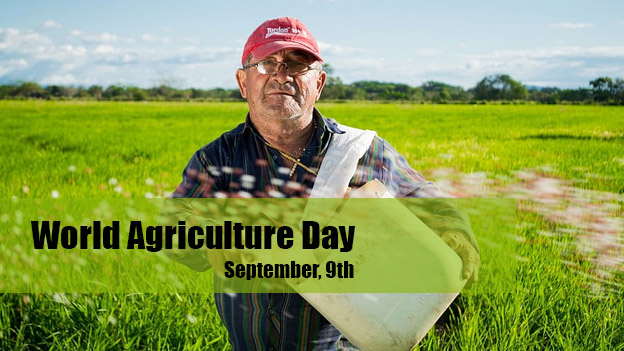Today, the CONSOLE project partners – according to the World Agriculture Day, want to honour one of the oldest activities for the subsistence of humanity: Agriculture.
On September 9th, World Agriculture Day is celebrated, an activity of great importance for the development of both families and economies in the world, and which has been especially important in times of pandemic.
What is agriculture?
Since the Neolithic Revolution, human beings have developed a set of activities related to the cultivation of the land and the treatment of the soil for the production and obtaining of Food (e.g., vegetables, the vegetables), fibres (e.g., linen, cotton), and so on.
Already in the Middle Ages, some innovations were applied, through new forms of production (such as irrigation), increasing crops and the variety of agricultural products.
Until very recently, agriculture has been the life support of the economy of the countries of Europe (and indeed of the whole world) where around 80% of the labour force was employed.
By then, everyone shared the work, men, women and children. There are many who claim that it was a society with environmental balance and human lived in harmony with the land, water, forests, animals; both domestic and wild. Because there was hardly any waste generated, every last resource was used, and even the organic remains.
The forests were cared for. The scrubland was used for heating and furnaces, and the trees provided wood, controlling its felling. There were almost no fires. The rivers and fountains had clear, uncontaminated water and the children bathed in rivers, ponds and ditches, without problems.
In the farmers’ house there were chickens, rabbits, pigs, and even sheep and goats in many cases. They did not know or use herbicides and insecticides. Everything was recycled and reused.
However, at present the agricultural sector has state-of-the-art machinery and technology that facilitates tillage, cultivation and harvesting, considerably increasing production levels and the quality of its products, satisfying the consumption needs of families at the level world. However, it has also caused adverse effects (soil erosion and compaction, loss of biodiversity, emission of pollutants, etc.).
Some advances in agriculture
The primary sector has made notable advances in improving production techniques and methods, as well as in the quality of food. Among them, it can highlight:
- GPS technology for the measurement, registration and calculation of land area.
- Temperature and humidity sensors, for the measurement of various Vegetation Indices and/or chlorophyll content, in order to minimize the impact of the soil and climate during the plant growth stage and production, detecting the vegetation content and the amount of nitrogen in the crops.
- Use of drones to obtain data such as water saturation levels, vegetative and water stress, plant height and determine the biomass of crops.
- GIS and Remote Sensing software applied to agriculture, for data collection, temperature, climatic and soil conditions, crop yield (…).
How to celebrate this world day?
On World Agriculture Day, activities, events and conferences are held to expose the changes, advances and contributions of agriculture in the whole world.
We would like to highlight the excellent workshop developed by the partners of the sister project EFFECT in which the partners of the CONSOLE and CONTRACTS projects have also participated, contributing our experiences and allowing us to advance together.
